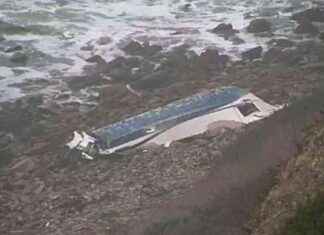Jens Stoltenberg: The European Union “must not compete ever,” with the NATO, but “complement it”
Emmanuel Macron insists in Berlin in a strong Europe in front of the “chaos” in global
“we Live in an age where we have big challenges to which we need a United, strong and integrated, both within their own countries and the European Union”, assures Paula Risikko. In this complex context, abounds the president of the Parliament of Finland, “the polarization is a danger, it is bad for every country where it happens and it is bad also for the unity of Europe”. “The worst of the populism”, he adds, “is that societies are falling apart and they lose that integrity and unity”.
During his visit to Madrid, at the invitation of his Spanish counterpart, Ana Pastor, Paula Risikko says that the advance of extremist ideas is “a current typical right now in the EU.” “It is something that has been seen in all the countries of Europe in recent times”, he says.
His country, despite the worldwide fame of your security rates and citizen satisfaction -is considered the happiest nation in the world, according to the ‘World Happiness Report’-, is no stranger to this trend. “Finland is not another planet”, says Risikko, who believes that the impulse for populist even “came before” in this nordic country.
In Helsinki, the current coalition Government of centre-right is integrated by the Party of the Centre, the prime minister, Juha Sipilä; National Coalition to which it belongs Risikko; and the far-right True Finns. This last formation, of discourse, nationalist and eurosceptic, exceeded in the number of seats National Coalition (one of the games with the greatest tradition of the country, to which also belongs the president of the Republic, Sauli Niinistö) in the parliamentary election of 2015, thus becoming the second political force in the country. “He had a number of votes impressive as in the previous elections, that is when it became strong,” recalls Risikko.
For the next parliamentary election, as Finland held in April, the president of the Parliament does not dare to speculate with a still greater advance in the polls this force the ultra-conservative, although slides that the current economic situation is more favorable than 2015, when the training right gave the ‘sorpasso’ National Coalition. “As president of the Parliament, which I hope is collaboration between the parties,” ditch.
“we’ll Have to think about in general if this is a danger or an opportunity”, slide the second authority Finnish on this trend continental. “Constructive criticism makes it possible to advance the society, but by itself, without solutions, its useless”, he says.
In this hectic european scene, also a former minister of the Interior are in favour of the idea, reiterated by the French president Emmanuel Macron and seconded by German chancellor Angela Merkel, an army transnational to protect the EU. “It is important that the European Union more strong, and therefore that species of european defence might be a way,” he says.
To date, Finland, member State of the EU since 1995, it has avoided joining the NATO in order to avoid confrontation with Russia, a country that historically has united a complicated relationship. This week, however, Helsinki asked for explanations from Moscow for the alleged sabotage of your GPS signal, coinciding precisely with some military manoeuvres with NATO in Lapland, a charge the Kremlin denies. “We have good diplomatic relations”, he argues, despite all of this, Risikko on the eastern neighbor.
On the question of the Alliance, however, “there has always been a lot of debate” in Finland. “There are different views and will be one of the topics that will be discuss in the face of new elections”, says Risikko.
On the Brexit, Risikko celebrates the latest developments in the negotiations that last week resulted in a preliminary agreement of divorce between London and Brussels. “The bad news is that we’ve had this stalemate that seemed to be a dead end for so long,” she believes, “it is very sad that will be, but since have decided to leave, that this process will be accelerated, you are finished and we can continue, looking forward to what will come after”.
In Spain, where, says the president of the Eduskunta, live “around 40,000 finns”, the bilateral relations are “excellent”. Both States, which this year celebrated the centenary of their diplomatic relations, are working on several projects of cooperation in the field of equality, an area in which Finland is a reference (was the first european country to give women the right to vote, and is currently considered the third more equal nation in the world by the ‘Global Gender Gap Index’).
Among the actions being considered, specific plan “to create within the EU a network of women parliamentarians to promote peace and security,” as well as other measures focused on gender violence and reconciliation of work. If everything goes according to plan, forward, the next spring will be Ana Pastor who travel to Helsinki to delve deeper into this joint effort.
According to the criteria of
Learn more





